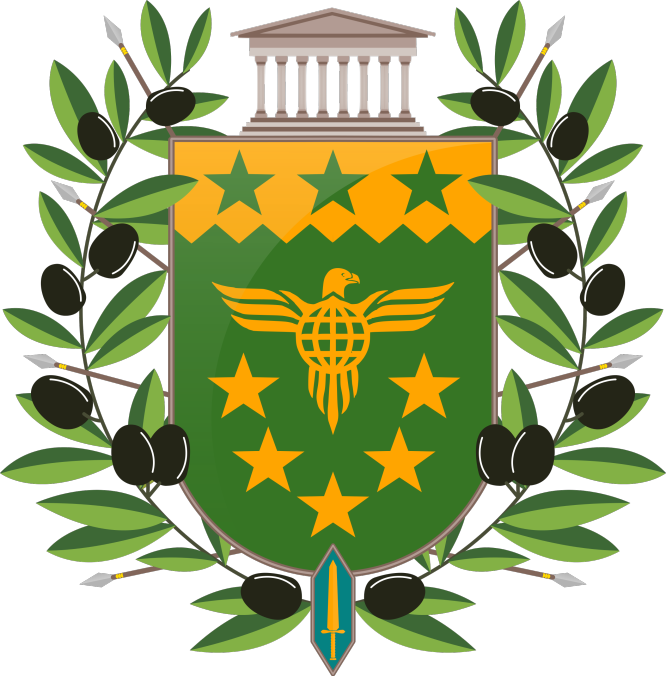
A MOTION
To Amend The Constitution, Introduced into the Senate of the Union of Democratic States on the 26th of August, by @Glaciosia
As follows:
WHEREAS the Constitution is a living document, which should be updated as the desires and de facto structure of the Union Changes;
UNDERSTANDING the usefulness of a flexible Executive;
BELIEVING in the importance of a strong philosophical basis for Constitutional powers;
Section 1: Amendment of Article 1
1. The Constitution of the Union of Democratic States, Article III shall be struck out and replaced as follows:
“1. The President is the Head of State, Head of Government, and Leader of the Executive Branch, which executes the law and leads the region on behalf of the people.
2. The President shall be elected every three months. Presidential Elections shall occur on the first day of January, April, July, and October. Elections shall be carried out in accordance with regional law.
3. The President shall be elected alongside their Vice President, who shall act as a deputy and aide to the President. The Vice President shall act in their place when the President is unable to act, and as acting President in the event that the office of President becomes vacant.
a). Should the office of the Vice President become vacant, the President shall nominate a replacement to the Senate for a confirmation vote.
b). Laws may be passed that create a line of succession past the Vice President.
4. During the term of the President, citizens may petition to recall the President and Vice President, provided that their petition has at least eight citizen signatures. After such a petition is presented to the Electoral Committee, a by-election for the office shall be held in which the incumbent officeholders shall automatically be on the ballot. Such petitions may only be submitted thirty days after the President assumes office.
5. Following the passage of a law in the Senate, the President has five days to either promulgate the law and make it legally binding or veto it. Before promulgation or a veto, the President may consult the Attorney General for legal advice regarding the law and its impacts.
a). Unless it is vetoed, a law automatically becomes promulgated after five days.
b). The Senate may overturn a veto with a three-fourth supermajority.
6.) The President shall have the following powers, subject to regulation by law:
a).The issuance of Executive Orders, directions for the implementation of laws and regulations for the business of executive governance.
b). The issuance of Persona Non Grata Declarations, which shall censure non-citizens and prohibit their entry into the region.
c) Signing interregional agreements and introducing motions to ratify them into the Senate.
7. The Executive shall be composed of the office of the President and Vice President, the Ministries and the Ministers who lead them.
8. The Executive shall carry out the day-to-day executive governance of the region, including the regulation of foreign affairs, domestic affairs, cultural affairs, and some legal matters.
9. Ministries may be established by law or by the President. Ministries will not automatically cease to exist following vacancy in the office of the President. Ministers may be appointed to and dismissed from Ministries by the President.
10. The President shall govern the distribution and scope of powers between the different organs of the Executive, and the Ministers shall govern such distribution within their Ministries.
a. The President shall have authority over the executive, and may override the actions of their subordinates within it.
b). Ministers shall have subsidiary authority over their Ministries, and may override the actions of their subordinates within it.
11. The Executive shall hold the following powers, subject to regulation by law:
a). Accepting, denying and processing citizenship applications.
b). The conduct of diplomacy and defense of the region.
c). The administration of programs and initiatives for the benefit of the region.
d). The prosecution of criminal law cases.
e). The execution of the laws of the Union.
f). These powers may be expanded upon via law, either in regard to the President or a specific Ministry.
13. The position of World Assembly Delegate within the Union’s NationStates region should be held by the holder of the office of World Assembly Delegate as established in this constitution.
a.) Vacancies in this office shall be filled by a Citizen appointed by the President and confirmed by the Senate.
b.) The holder of this office shall be reconfirmed on the first day of Every March and September.”
Section 2: Miscellaneous Amendments
1. Article 2, Clause 2, Sub-clause b shall be struck out.
2. A new sub-clause shall be added to Article 2, Clause 10 reading “Motions to ratify interregional agreements.”